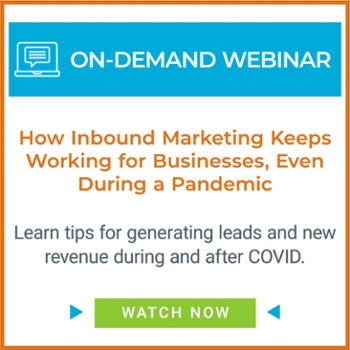1 min read
How to Read Competitor Blogs to Improve Your Business Blog
Ideally, every blog is unique, reflecting the things that set you or your business apart. Regardless of how you approach that, there’s always...


Have you ever started reading a blog post or an article only to find yourself confused and ready to give up on it? That's because the introduction didn't do its job — reel you in and capture your attention. Not to say that the introduction of an article is everything, but it kind of is.
Think of it like this — you turn on a movie, and within the first 15 minutes, you’re scrolling on your phone, not even paying attention to the film. Your lack of interest might be a result of the directors failing to intrigue you. The same goes for reading an article. If you don't engage the reader quickly, you could lose them.
 On average, you have around 3 seconds to pique your reader’s interest. That means if you attract them almost instantly, you're more likely to have an engaged audience throughout the remainder of your piece.
On average, you have around 3 seconds to pique your reader’s interest. That means if you attract them almost instantly, you're more likely to have an engaged audience throughout the remainder of your piece.
If you fail to put together the perfect introduction for your article, you risk the viewer bouncing before they even get to the good part. So, how do you get their attention quickly? Let's discuss.
First, you need to decide on your hook. This is the first sentence or two of your introductory paragraph. Here is where you must make a splash because the most important words in any blog post or article are the first ones.
Set up a scenario — Quickly establish a scene in which the reader can relate to themselves. Allow them to immerse themselves in the picture you're presenting. For example, ask them to imagine that they’re a business owner who is frustrated with how they're tracking project management. Paint a picture of what that looks like and then let them know this is common and can be fixed.
Ask a question — Begin by asking a question or two that allows the reader to relate to the problems or obstacles you're going to address. This will help the reader feel represented and that they're not alone.
Share a statistic — Cold hard facts are a great way to pique someone's interest. For example, if you're writing a piece about the benefits of hiring a marketing agency, share a statistic that shows how many businesses use one on average.
Once you've got their attention by relating to their challenges or pain points, give a brief overview of what they can expect to learn by reading your article. Follow that with a transition into the body of the article, and you've set yourself up for success.
Hook + brief explanation + smooth transition = the perfect introductory paragraph!
Think of an introduction paragraph like meeting someone for the first time. That first impression is memorable and something that you’ll relate to that person for quite some time, potentially deciding your relationship with them. When it comes to reading the intro of an article, it will determine whether or not the reader continues on.
If the prospect gets lost after the initial paragraphs and chooses to leave your site, then you missed the chance to tell them about your business and how you can help them. When it comes to your blog, you want to position your brand as unbiased and educational. This approach can label you as a thought leader and trustworthy.
The information you're providing in your articles is valuable, and your prospects need to see it. Focus on formulating the right introduction for your content, and you’ll have a better retention rate. This, in turn, can result in more lead generation and even the acquiring of new customers.
Your introduction doesn't have to say it all, but it does have to make a good impression. Start focusing more on grabbing the attention of your prospects, and you'll be glad you did.

1 min read
Ideally, every blog is unique, reflecting the things that set you or your business apart. Regardless of how you approach that, there’s always...

Attempting to tackle your entire content marketing to-do list in one day could be overwhelming. Actually, it would be VERY overwhelming. But if you...
![6 Important Steps to Add to Your Blog Process to Get Better Results [VIDEO]](https://leadg2.thecenterforsalesstrategy.com/hubfs/Screen%20Shot%202019-05-17%20at%2012.32.14%20PM.png)
I hear a lot of people in marketing and business development that tell me that they "blog." But I want to know what they are doing with their blog......